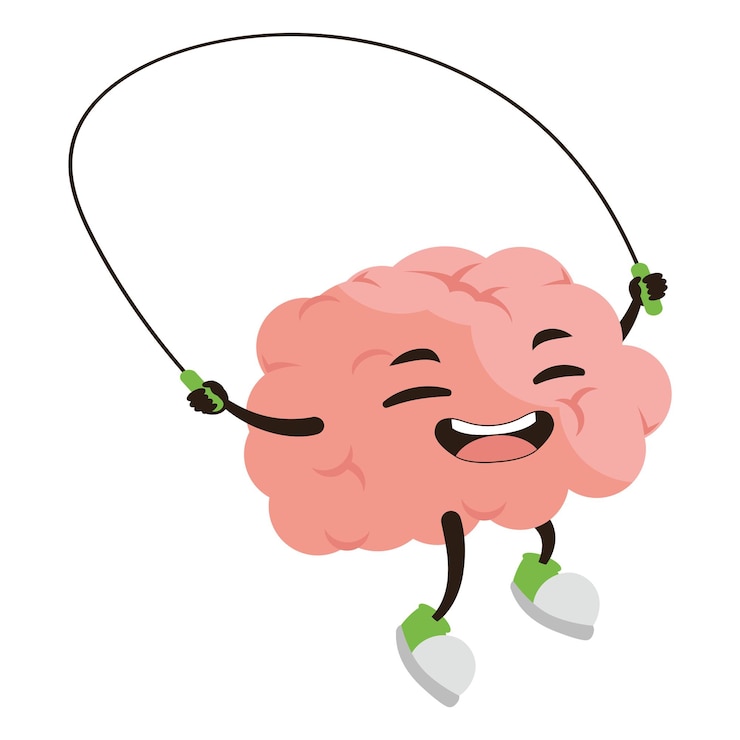Healthy Brain Exercises: Boosting Cognitive Function and Mental Wellness
In our fast-paced, technology-driven world, maintaining a healthy brain is essential for overall well-being. Just as physical exercise strengthens the body, engaging in specific brain exercises can enhance cognitive functions such as memory, attention, and problem-solving. Here’s a comprehensive guide to healthy brain exercises that can boost mental agility and promote lifelong brain health.
Understanding Brain Health
The brain is a complex organ responsible for controlling our thoughts, movements, emotions, and behaviors. It is crucial to keep our brains active and engaged, as cognitive decline can lead to issues such as memory loss, decreased problem-solving abilities, and an increased risk of neurodegenerative diseases like Alzheimer’s. Regular brain exercises can help improve neuroplasticity, the brain’s ability to adapt and reorganize itself, which is vital for maintaining cognitive function as we age.
Effective Brain Exercises
- Puzzles and Games
- Crossword Puzzles: These not only challenge your vocabulary but also improve your problem-solving skills. They require you to think critically and remember facts.
- Sudoku: This number puzzle enhances logical thinking and pattern recognition.
- Chess and Strategy Games: Games like chess promote strategic thinking and planning, helping improve foresight and decision-making skills.
- Memory Exercises
- Mnemonic Devices: Use acronyms, rhymes, or visual imagery to remember information. For example, creating a story or image to associate with a list of items can enhance recall.
- Remembering Names: Practice repeating names when you meet someone new, or try to recall names of people you meet throughout the week.
- Learning New Skills
- Musical Instruments: Learning to play an instrument improves memory and coordination while stimulating different areas of the brain.
- New Languages: Studying a new language enhances cognitive flexibility and improves memory. The challenge of understanding grammar and vocabulary stimulates various brain regions.
- Physical Exercise
- Engaging in regular physical activity, such as walking, jogging, or yoga, not only benefits physical health but also boosts brain health. Exercise increases blood flow to the brain and encourages the growth of new brain cells.
- Meditation and Mindfulness
- Practicing mindfulness or meditation can enhance attention, focus, and emotional regulation. Mindfulness exercises help reduce stress and improve overall mental well-being, which is crucial for cognitive health.
- Social Interaction
- Engaging in meaningful conversations, joining clubs, or participating in community events can stimulate your brain. Social interactions challenge you to think, respond, and adapt to different situations, promoting mental agility.
- Reading and Writing
- Reading stimulates the brain by enhancing vocabulary, comprehension, and critical thinking. Writing, whether through journaling, storytelling, or blogging, encourages self-expression and creativity.
Incorporating Brain Exercises into Daily Life
- Set Aside Time: Dedicate a specific time each day for brain exercises. Just 15-30 minutes can be beneficial.
- Variety is Key: Mix different types of brain exercises to keep your routine engaging and challenging.
- Stay Consistent: Like physical fitness, consistency is crucial for effective brain training. Make it a habit to include brain exercises in your daily routine.
Conclusion
Healthy brain exercises are vital for maintaining cognitive function and mental well-being throughout life. By incorporating puzzles, memory games, physical activities, mindfulness, and social interactions into your daily routine, you can boost your brain’s health and resilience. Just as you prioritize physical fitness, remember to exercise your brain regularly to enhance your overall quality of life. Engaging in these activities can pave the way for a sharper mind, better memory, and improved emotional health, ensuring that you stay mentally fit for years to come.


